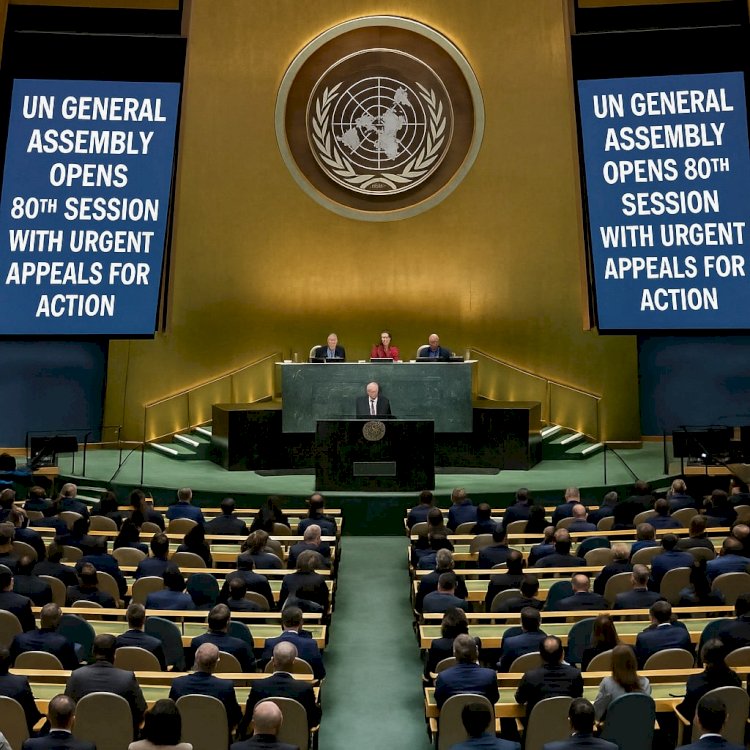UN General Assembly Opens 80th Session with Urgent Appeals for Action

New York, Sept. 9, 2025 — The United Nations General Assembly officially opened its 80th session, marking eight decades since the institution’s founding, against a backdrop of global turmoil and unprecedented humanitarian need.
A sober opening message
Taking the gavel as President of the Assembly, Annalena Baerbock urged member states to treat this milestone as more than symbolic. “Eighty years sounds like a reason to celebrate,” she noted, before adding, “but how can we celebrate when millions suffer in wars, face hunger, and endure the rising impacts of climate change?”
Her remarks highlighted Gaza’s humanitarian catastrophe, the denial of education to Afghan girls, gender-based violence worldwide, and the existential threats to Pacific island nations. The central theme chosen for this year’s gathering is “Better together: 80 years and more for peace, development and human rights.”
Pressing challenges on the agenda
The Assembly meets amid simultaneous crises: Israel’s military campaign in Gaza, the grinding war in Ukraine, civil strife in Sudan, and the escalating impacts of climate change.
Secretary-General António Guterres warned leaders that the world has entered “an era of reckless disruption,” and said the credibility of the U.N. depends on its ability to act decisively. He stressed that international law — including rulings from the International Court of Justice — must be respected without exception.
The session is also shaped by sharp divisions. The return of U.S. President Donald Trump to the Assembly podium is among the most closely watched events. While pledging conditional support for U.N. initiatives, Trump has slashed Washington’s financial contributions by hundreds of millions of dollars, raising fears that critical humanitarian and development programs will be hollowed out.
Calls for reform and symbolic returns
Beyond immediate crises, this session is expected to spotlight institutional reform. The “UN80” initiative aims to cut costs, streamline bureaucracy, and modernize the organization, though skepticism remains about whether entrenched political gridlock can be overcome.
The 80th session is also notable for high-profile appearances: Syrian President Ahmed al-Sharaa is attending for the first time in nearly six decades, signaling a dramatic diplomatic shift. Ghana’s President John Mahama is leading his nation’s delegation, emphasizing Africa’s voice in shaping reforms.
Women’s rights remain a key priority, with leaders expressing concern at stalled progress three decades after the Beijing Conference.
Looking ahead
-
The General Debate, running from September 23 to 29, will see nearly 200 heads of state and government present their national visions.
-
Diplomatic side meetings are expected to focus on Gaza, Ukraine, climate finance, artificial intelligence governance, and humanitarian corridors.
-
Reform proposals under the UN80 banner will be debated, with budget restructuring and the limits of Security Council veto power at the center of contention.
As the United Nations enters its ninth decade, the 80th session is less about commemoration and more about survival. Its success will be measured not by soaring speeches but by whether leaders seize this opportunity to prove that multilateralism still matters in an era of fragmentation.

 content-team
content-team 


















